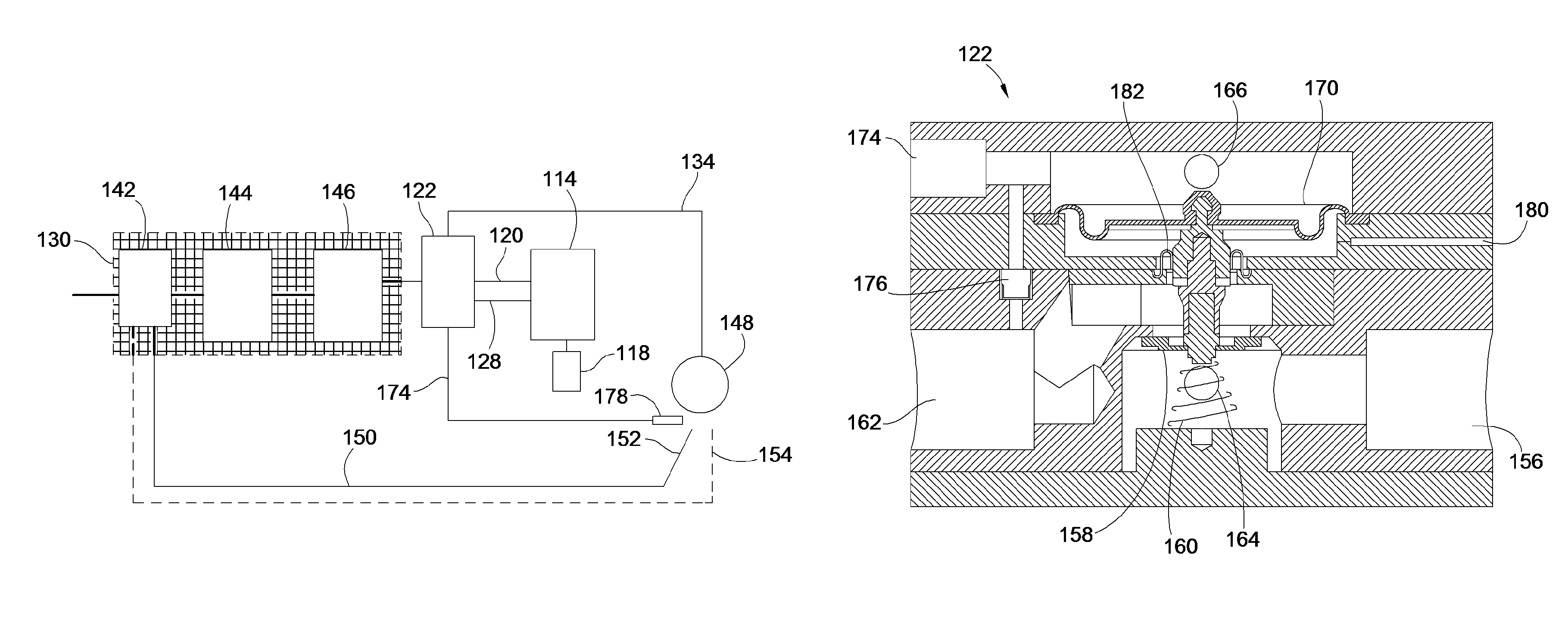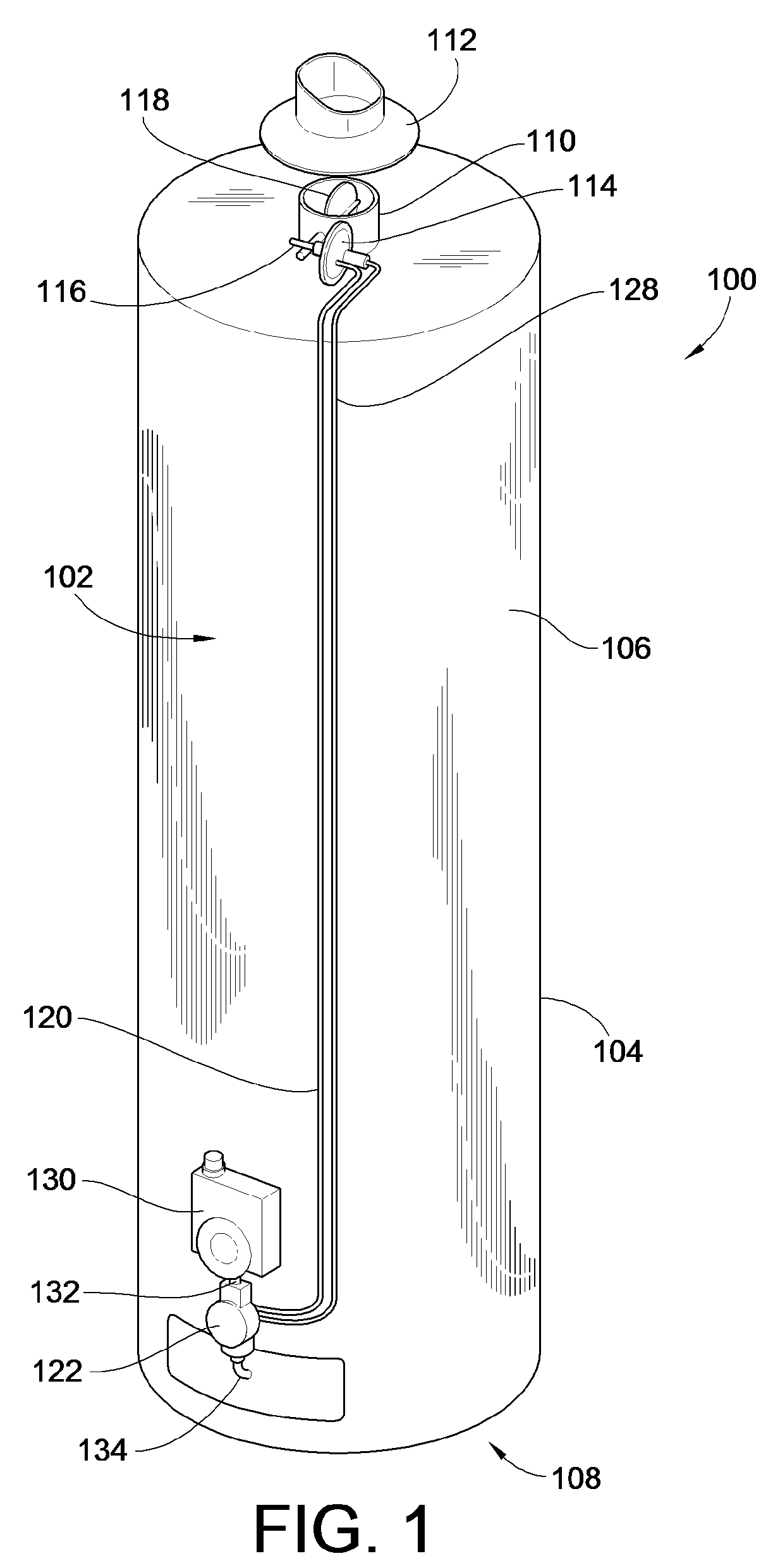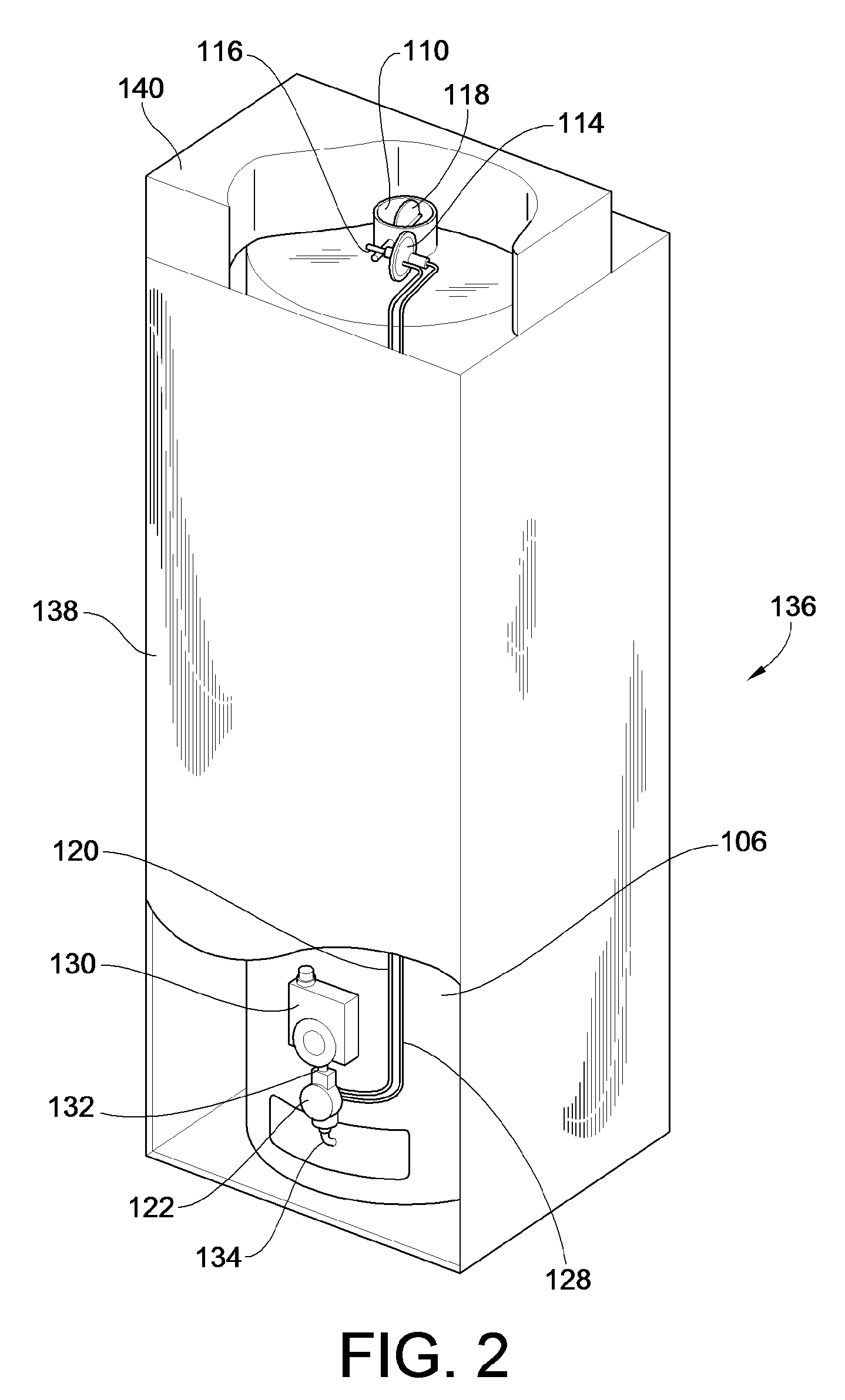Micro-pilot for gas appliance
a gas appliance and micro-pilot technology, applied in the direction of combustion ignition, lighting and heating apparatus, combustion process, etc., can solve the problems of large explosion and household fire, and achieve the effects of reducing greenhouse gas emissions, saving energy, and saving energy
- Summary
- Abstract
- Description
- Claims
- Application Information
AI Technical Summary
Benefits of technology
Problems solved by technology
Method used
Image
Examples
Embodiment Construction
[0030]Turning now to the drawings, there is illustrated in FIG. 1 an indoor hot water heater 100 such as typically installed in dwellings in the North American market and to which embodiments of the micro-pilot system of the present invention provide particular benefit. The illustrated hot water heater includes a standby heat loss control system 102, such as that described in co-pending application Ser. No. 12 / 175,551, entitled SYSTEM AND METHOD TO REDUCE STANDBY ENERGY LOSS IN A GAS WATER HEATER, filed on Jul. 18, 2008 and assigned to the assignee of the instant application, the teachings and disclosure of which are hereby incorporated in their entireties by reference thereto. However, as will be discussed more fully below, embodiments of the present invention provide benefit to hot water heaters and other gas burning appliances that do not include such a standby heat loss control system as well. Indeed, it should be noted that while the following description will discuss various e...
PUM
 Login to View More
Login to View More Abstract
Description
Claims
Application Information
 Login to View More
Login to View More - R&D
- Intellectual Property
- Life Sciences
- Materials
- Tech Scout
- Unparalleled Data Quality
- Higher Quality Content
- 60% Fewer Hallucinations
Browse by: Latest US Patents, China's latest patents, Technical Efficacy Thesaurus, Application Domain, Technology Topic, Popular Technical Reports.
© 2025 PatSnap. All rights reserved.Legal|Privacy policy|Modern Slavery Act Transparency Statement|Sitemap|About US| Contact US: help@patsnap.com



